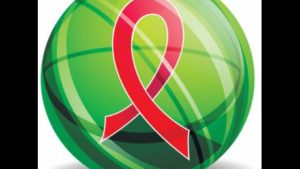Overview
There have been no reported cases of HIV criminalisation under Jamaican criminal law, and currently no HIV-specific laws exist. However, prosecutions are possible under general grievous bodily harm provisions within the Offences Against the Person Act 1864 (OAPA), for ‘intentional’ (section 20) or ‘reckless’ (section 22) transmission of sexual infections, including HIV. These offences carry maximum sentences of life and three years’ imprisonment with or without hard labour, respectively.
This precedent was established by the Jamaican Supreme Court in the 2016 extradition case of George Flowers v DPP et al. In 2013 the Government of Canada requested the extradition of a Jamaican national, George Flowers, who it is alleged had fled Canada after engaging in unprotected sexual intercourse with four women without disclosing his HIV status, three of whom subsequently contracted HIV. Following his arrest, Flowers appealed against the decision to proceed with his extradition to Canada, arguing that there was no corresponding offence under Jamaican law to the Canadian offence of aggravated sexual assault. The Court referred to the law of the same name in England and Wales on which the Jamaican OAPA is modelled, together with leading English cases such as R v Dica and R v Konzani, to determine that had the acts taken place in Jamaica, Flowers would have been liable for offences under Jamaican grievous bodily harm provisions in respect of the three women who contracted HIV. He was subsequently extradited to Canada.
Importantly, actual transmission of HIV must take place in order for someone to be found guilty of an offence under these provisions. The law does not criminalise sexual contact, risk of transmission, exposure, or failure to disclose one’s status per se. In this regard, the law is not overly broad and closely adheres to international guidance.
While there is currently no HIV-specific criminal law in Jamaica, in a 2018 review of the OAPA and other laws a Joint Select Committee took the view that there was a deficiency in the law in relation to the deliberate or intentional spreading of HIV, and recommended amending the OAPA to make it an offence to ‘wilfully or recklessly infect a partner with any sexually transmissible disease that can inflict serious bodily harm to that partner’. This recommendation has come under some scrutiny and has not been implemented to date.
Laws
Offences Against the Person Act 1864 (OAPA)
Section 20. Causing or Tending to Cause Danger to Life, or Bodily Harm
(I) Subject to subsection (2), whosoever, shall unlawfully and maliciously, by any means whatsoever, wound, or to shoot or cause any grievous bodily harm to any person, or shoot at any person, or by drawing a trigger, or in any other manner attempt to discharge any kind of loaded arms at any person, with intent in any of the cases aforesaid, to maim, disfigure or disable any person, or to do some other grievous bodily harm to any person, or ‘with intent to resist or prevent the lawful apprehension or detainer or any person, shall be guilty of felony, and, being convicted thereof, shall be liable, to be imprisoned for life with or without hard labour.
Section 22. Unlawful Wounding
Whosoever shall unlawfully and maliciously wound or inflict any grievous bodily harm upon any other person, either with or without any weapon or instrument, shall be guilty of a misdemeanour, and, being convicted thereof, shall be liable to be imprisoned for a term not exceeding three years, with or without hard labour.
Further resources
This assessment ‘Legal Assessment of the Effectiveness of HIV Criminalisation Laws-from High to Low-Income Countries’, commissioned by the National Family Planning Board (NFPB) with the support of the Ministry of Health’s HIV/STI/TB Unit in Jamaica, demonstrates why the enactment of an HIV-specific criminal law in Jamaica would be harmful to the national HIV response. It sets out the bases on which the recommendation for an HIV-specific criminal law should be rejected and highlights the need for public health policy considerations to centre the discussions surrounding HIV criminalisation in Jamaica.
Acknowledgements
Our thanks to Ruben Pages Ramos at UNAIDS for his research assistance to confirm current relevant legislation.
HIV Justice Network's Positive Destinations
Visit the Jamaica page on Positive Destinations for information on regulations that restrict entry, stay, and residency based on HIV-positive status, as well as access to HIV treatment for non-nationals.





